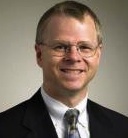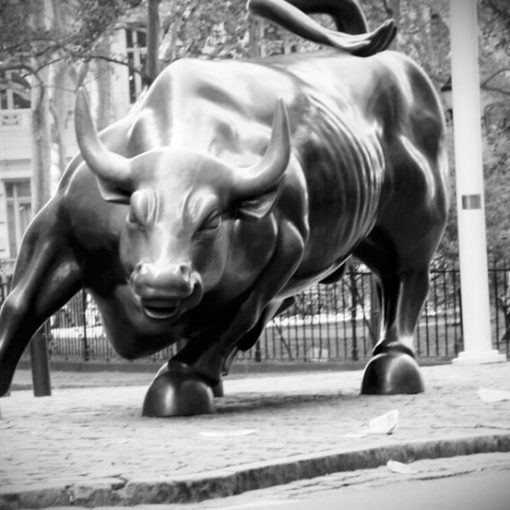In this series, we’ve asked Covestor managers: “What is the single most important lesson you’ve learned while striving to become a successful investor?”
About 15 years ago, I got my first job on the “buy side” of Wall Street. I was recruited to work at a money management firm as an analyst, covering the technology sector. The late 1990s was an exciting time, with the dot.com revolution happening and hardly a day went by without some big IPO blasting into the stratosphere.
Though I wasn’t assigned specifically to any team, I spent a lot of time working with a small-cap growth portfolio manager, Al. Al wasn’t much older than I was, but he was a lot more experienced. One thing I noticed about Al was that he didn’t seem very happy when his fund had a good day of performance. He might have had a company report earnings, or announce a big strategic partnership, and that fund holding might have gone up 20% in a day. So on that day his fund might have gained, say, 10 basis points compared to the performance of his benchmark, the Russell 2000 Growth index.
To put this in perspective, a ten basis point gain in a single day is pretty good. In those days, if you finished a year 250 basis points ahead of your benchmark, you’d max out your performance bonus.
I’d lean into his office and said, “nice move in Polyrazzmatazz today, huh?” But Al would shrug and perhaps ask what I thought of another company whose management we had met earlier in the day. I don’t recall if I ever asked Al point-blank why he wasn’t more fired up on good days.
Fast forward a couple of years, after I was hired away to be a portfolio manager myself, also on a small-cap growth fund. And it was there, working alongside a really smart lead manager, that I quickly understood what he called “portfolio mathematics” and why my old buddy Al wasn’t out taking victory laps on a good day.
Now that I was directly responsible for a fund, I took a lot more notice of the day-to-day fund performance versus our benchmark. It was like riding a bucking bronco. Up 35 basis points versus the benchmark one day. Down 35 the next. And generally there was no news to account for any of this. We might be far from earnings season on a slow day in August, yet we were bouncing around like a pogo stick.
“Do the math,” my lead manager told me one day. “We own about 100 positions, in roughly equal weights. Even if each of them gains only 1 percentage point compared to the benchmark, that’s a 100 basis point gain right there. “Or,” he said ominously, “you could have just as easily lost 100. For no good reason. “ And we routinely had days where the whole portfolio was up or down three, four or five percent, with our benchmark moving with the same amount of volatility.
At some point, he also explained the performance risk inherent in the otherwise benign “bid” and “ask” prices of stocks. Each of our positions might have a bid-ask spread of about 0.5% – say, for example, $9.98 bid by $10.03 ask. Suppose they all closed last night on the ask. And today, even though the market might have been roughly flat, with neither the bid nor ask changing, they all happened to close on the bid. The stock market went nowhere, but you managed to “lose” 50 basis points. It made me glad our boss, the head of equities, was herself an experienced portfolio manager and understood “portfolio math.”
And thus the single most important lesson I’ve learned about investing is that on any given day, the noise of the market is far more powerful than any signal. And it’s very easy to react to that noise as though it has meaning. And, therefore, it’s very easy to take action (buy, sell) when really, no action is necessary.
Let’s put some more numbers together to explain this phenomenon. In 2009, the Nasdaq Composite Index (the “Comp”) rose sharply, as the economy began to recover from the global financial crisis that peaked in 2008. Specifically, the Comp rose 43.9% that year, or an average gain of 0.14% for each of the 252 trading days in 2009. But that was just the average daily gain. Can you guess how many days the Comp rose only that much or less?
Answer: 13. On the other 239 trading days, the Comp rose more than 0.14%, or fell. Even if you include the days where the Comp fell by less than -0.14%, the total is only 28 days. The other 224 days were Mr. Market’s Wild Ride. On Inauguration Day, January 20, the Comp fell 5.8%. On March 10, the Comp jumped just over 7%. And this was one of the best years ever for the Comp; most years, the average daily move is much less than +0.14%. But the volatility is always there.
In other words, the stock market is an over-reaction machine. Over any stretch of time it’s 11 steps forward and 10 steps back. Or five steps forward and eight steps back. Which is why absent specific news about a company (earnings, big contract, lawsuit), most of a stock’s daily price movement is just pure noise. And reacting like it means something is deeply unwise.
The great poker champion Chris Ferguson once said that the results of a hand of poker are 99% luck and 1% skill, but the results of a poker career are 99% skill and 1% luck. And the same is true of investing: the longer the time frame, the more the result of an investment decision is due to skill (or lack thereof) and the less it is due to market noise. Do your research, make your investment and put on some noise-cancelling headphones.
My belief in this signal-versus-noise relationship was only enhanced when I read the book Fooled by Randomness by Nassim Taleb, published in 2004. I strongly recommend this book for any investor. It was hugely influential on me, and many of the concepts discussed in it validate the strategy we use in managing the Crabtree Technology model.
To honor Mr. Taleb, I’m going to give him the last word, as he writes about listening to a fund-of-funds portfolio manager discuss other managers’ performance:
“[I] suspected that he was fooled by randomness…the extent had to be far greater than one could imagine. A back of the envelope calculation showed that at least 97% of what he was discussing was just noise. The fact that he was comparing performances made the matter far worse.”




